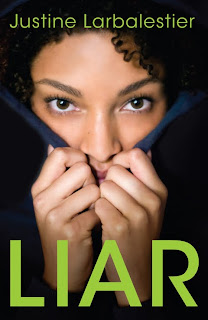
The Decoding of Lana Morris by Laura & Tom McNeal
The ADD review bit: Lana Morris is one of those heartwarming characters that reminds me why I read YA. The plot is there in whispers and fits, but what turns the pages here is watching a character discover her backbone and start to understand her reason to be.
Interested? Nice. Keep on keeping on: I really mean what I said up there - characters like Lana are why I read YA. They are so in touch with the base emotions - love, envy, anger, fear, sadness, grief that the disaffected tone of most modern literature is missing, and I'm never sad to see it go. Things happen, the character reacts, and usually makes the most plot-drivingly interesting decision available because a) everything when you're 12-19 is life or death and b) those mistakes and triumphs need to be made as soon as possible, because there is probably homework to get to. And Lana is a shining example of this teen trope, because her situation is already so dire. A missing father, absent mother, in a house full of children with special needs, in love with her foster father, trying to be in with the lowest common denominator of teenage thieves and lowlifes... she has a mixed bag. So of course a bit of magic realism would sock her right in the stomach and then take hold.
Plot: Lana Morris lives in a house with five special needs kids (SNKs) affectionately called "Snicks." Her foster mother is an ice queen, her foster father is dreamy. When she is mysteriously given a "Ladies Drawing Kit," she finds out that what she draws comes true. So... with so many things she wants to be true in her life, she needs to figure out: what does she want to wish for?
More: I think my favorite part about this particular novel, Lana aside, is the "be careful what you wish for" plot is thrown out the window pretty quickly. She figures out her wishes are kind of difficult to put on paper, and the magic realism takes the form of mildly freakish coincidences that could (for the cynical) remain coincidences. Instead, the wish fulfillment serves as a neat little metaphor for being able to take control of your life as much as you possibly can. And with that power in hand, she starts using it, drawing on her wish paper or just making decisions for herself, results and consequences be darned.
Also, the way the Snicks are portrayed seemed perfect. They are not glossed over and reduced to quirks. They are much more than that, and Lana's relationship with Tilly is heart warming to say the least.
Should you read it? I liked it, I know that much. But here's the thing, and it's a shame I'm only getting to this here: the Mcneals write amazing books. This is the fourth I've read, and they are all fantastic examples of why YA is more than YA. And if you are going to read only one of their books, I'd choose Crooked or Zipped. But if everything I typed above here has made you open an amazon.com window to find out what this little number is going for these days, then... rock it out. Lana's good company.


